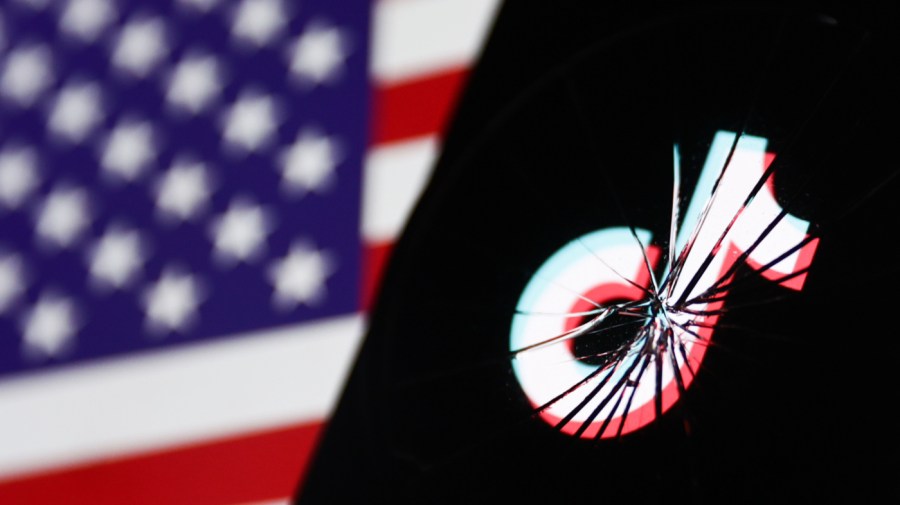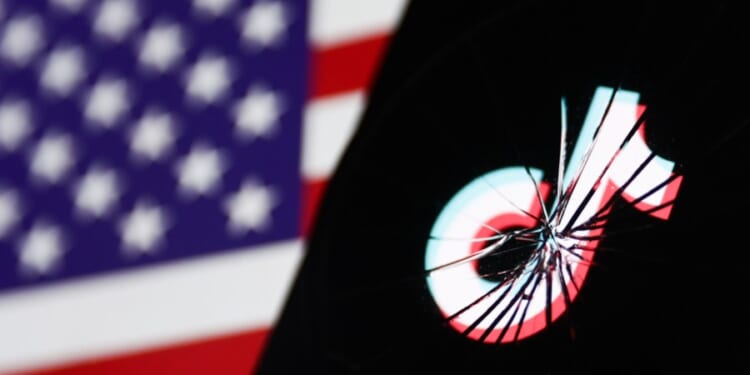
Following President Trump’s recent move to enable additional 10 percent tariffs on Chinese goods, on top of an earlier 10 percent tariff, the Chinese government filed a lawsuit with the World Trade Organization saying the U.S. violated WTO rules. China is ready for battle.
“If war is what the U.S. wants, be it a tariff war, a trade war or any other type of war, we’re ready to fight till the end,” the Chinese Embassy in the U.S. posted on X.
Meanwhile, the mid-March deadline to sell or ban popular social media app TikTok in the U.S. is quickly approaching. Reportedly there are offers looming to buy TikTok, including a bid from Alexis Ohanian, the cofounder of Reddit, along with former Los Angeles Dodgers owner Frank McCourt and Kevin O’Leary. But a permanent ban on TikTok, whose parent company is the 40 percent Chinese-owned ByteDance, would serve to protect its U.S. competitors, from Instagram to Snapchat.
The surest achievement for the U.S. with such a ban would be a step closer to becoming the very autocratic monster it has sought to tame.
TikTok has been identified as a threat to U.S. national security, domestic user privacy and indigenous tech firms. Each of these threats on its own would be nothing new. Posed all at once by one single app, however, signifies a fundamental shift in the nature of the game. To understand why, it is important to understand the transmission of information between digital devices.
What’s unique about TikTok’s information flow is its capacity to accommodate a multitude of vastly different things simultaneously. Just as citizens mobilize against repressive governments through online messaging, TikTok is used to pass and intercept intelligence. All this happens as millions of teens are gleaning the same internet traffic for prank ideas and dance trends. A single data stream can contain military secrets, trade secrets, whispers between political dissidents, intimate images involving minors and more.
That’s how, as an app that relies on information transmission — and the second most downloaded app in the U.S. after Temu — TikTok triggers protectionist pressure from Silicon Valley interests in addition to hawkish pressure from Washington, D.C.
The entanglement of these interests affords lawmakers a quicker and sneakier path to their goals. They need now pick just one thing from the bottomless menu of all things objectionable that TikTok could transmit — child pornography and harms to mental health alike — and simply ban the app under that reasoning.
If such a strategy sounds familiar, it should. This is a page straight out of China’s playbook.
For decades, China has practiced extensive internet control to suppress political unrest. But in blocking scores of foreign websites and apps, it has given a nearly 30 percent revenue boost to its domestic competitors.
A tariff by China on Google or Facebook would have been promptly stalled by sanctions and retaliations. Instead, internet control has allowed China to reap the economic benefit as a seemingly incidental gain without paying the political cost. Sweeping internet censorship may be a prerogative for dictators, yet the same logic of protectionism in disguise is a free-for-all. For the U.S., resisting this temptation has proven all but futile.
Those who argue that banning TikTok would safeguard American democracy from a regime looking to erode it don’t seem to realize how woefully similar the U.S. approach has been for its trusted few.
In the 1980s, the U.S. stemmed Japan’s surging command of the automobile market through such measures as the famous import quota masked as a “voluntary export restraint.” These nonetheless paled in comparison to the constellation of trade instruments, including hefty price floors, in the 1986 U.S.-Japan trade agreement on semiconductors. Bolstered by 100 percent punitive tariffs, it helped cement U.S. dominance against rising Japanese rivals like NEC.
That Japan as a democratic ally posed little national security threat to the U.S. did not soothe the market envy. Pulling the trigger at a foe would undoubtedly make for a better look than at a friend — except the trigger need not even be pulled in the case of TikTok. It’s tough to pretend it wasn’t about cars and chips with quotas and tariffs, but far easier to deny shielding domestic tech firms from competition when a foreign app can be canceled for a nobler reason.
A TikTok ban isn’t just a clumsy attempt by sovereign states at having the free flow of information and eating it too. It signals what trade protection will look like in the future. The same internet that connects family video calls facilitates scientific discoveries even as it enables nefarious transactions.
That information contains multitudes is why consumers have been able to have so many nice things so fast, but it also lends a convenient cloak to policies that enrich the few at the expense of the rest. Lucrative as it is for Big Tech, the U.S. must fight the urge of using its enemies’ tactics: Defending democracy is the one thing that banning TikTok will not do.
Meicen Sun is an assistant professor at the University of Illinois School of Information Sciences, an affiliated faculty at MIT FutureTech and a Public Voices Fellow with The OpEd Project.











